Ramadan in Cuba is a really special thing. Yes, in Cuba!
Some background: While planning a trip to Cuba with my mother in January, I discovered there is a Mosque in Old Havana. Before going, I made contact with Brother Aqill, an admin of the “Liga Islamica de Cuba” Facebook page who provided information about the mosque and its location.
We found the mosque, Mezquita Abdallah (dedicated on June 17, 2015) on the pedestrian walkway of Calle Oficios near Plaza de Armas.
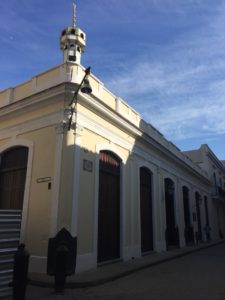
As I entered I was delighted to see how large and well-appointed it was. We’d arrived shortly before the evening prayer and were greeted by a group of men, “Assalamu Alaikum” (Peace be unto you), and offered a cup of tea while we waited for the prayer to start. These simple acts, the Islamic greeting (in Arabic, regardless of native tongue) and the offering of tea to a stranger, are ones practiced all across the Muslim world. They are signs of welcome that made me feel enveloped in a cocoon of familiarity and brother/sisterhood.
The man who welcomed us so kindly introduced himself as Bilal. Even though it’s not required, the people I met had taken Islamic names, which they use among their Muslims friends and family, but still used their given names around others. He said he’s been practicing Islam for 26 years. He was introduced to Islam by some merchants from Morocco, whose character he admired. He hadn’t been very religious; he was familiar with Santaria (an Afro-Caribbean religion practiced by many in Cuba), which his wife still practices.
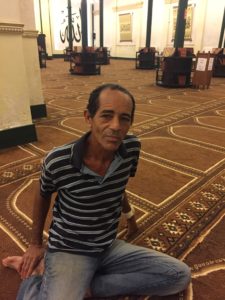
When Bilal started practicing Islam, he said there were only about 11 Muslims (that he knew of) in all of Cuba. Now there are reportedly about 10,000 on the Island, the majority of which are native to Cuba with some being students or immigrants. At Mezquita Aballah the congregational prayer on Friday (Jummah) draws 150-200 people. They are overflowing their present location and are building a larger mosque nearby funded by Saudi Arabia.
Being a Muslim in Cuba became easier when the religion became legally recognized in 2007, before then it was not permitted to pray in congregation in public.
Although internet is spotty, I’ve kept in touch with Aqiil, the Facebook page admin. He informed me that the Muslim community eagerly welcomed the month of Ramadan, a month of fasting from sunrise to sunset, which started May 27th and will end June 24th. He said “The spirit that reigns in these days in the community is very beautiful; love for Allah and his prophet Muhammad unites us and strengthens us.” They meet in the mosque to break the fast then pray the special Ramadan evening prayer of ‘taraweeh’ together. There are usually 120-150 people in attendance with over 300 on the weekends. The embassy of Saudi Arabia provides funds for the meals as do the embassies of other Muslim majority countries.
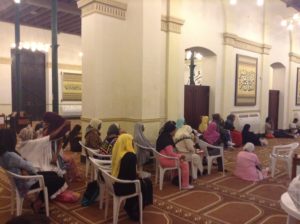
Aqill told me “Muslims outside of Havana do not have fixed places of worship or Mosques, the prayers are made in houses or small mussalahs (prayer halls). Even with that, and other limitations, they do not stop fulfilling their religious duties, their will is strong.”
The spirt of Islam is so strong at Mezquita Abdallah. When I was there in January I encountered a German man of Somali descent who had heard about the mosque in Cuba and wanted to visit. A French woman of Turkish descent stopped by with a Cuban friend who wanted to learn about Islam. Then a Muslim African American student came in, using free time from her school tour, to visit the mosque and pray there.
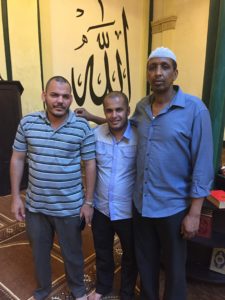
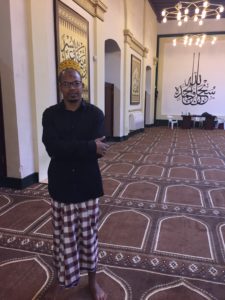
Those encounters were so spiritual; the sense of connectivity with people from all over the world was powerful. With Muslims, there is a bond that transcends nationality and language. When together, there is a sense of welcome, homecoming, fellowship, and peace. Those feelings are intensified during this holy month of Ramadan.
Published in the Huff Post on June 10, 2017 and the Charlotte Observer on June 12, 2017
